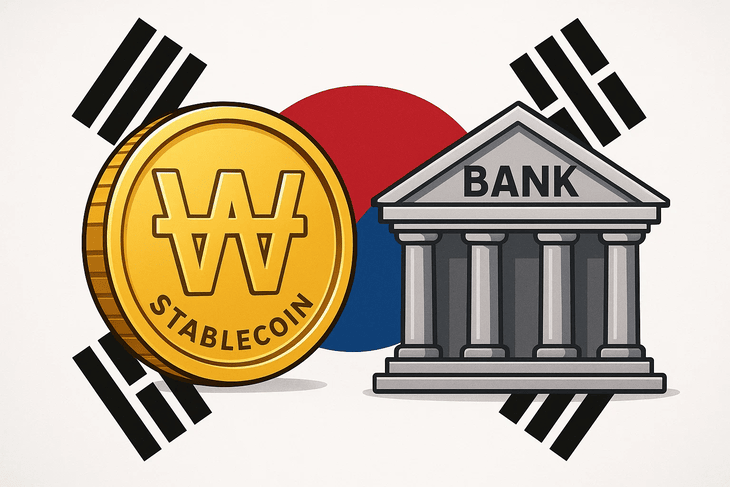
Digital Currency Pivot: South Korea Favors Bank-Issued Stablecoins Over CBDC
South Korea has officially paused its central bank digital currency (CBDC) development, redirecting its attention toward a bank-led stablecoin framework. The Bank of Korea (BOK) recently concluded the first phase of its retail CBDC pilot, dubbed “Project Han River,” but has decided against moving into the next phase due to escalating costs, technological complexity, and growing resistance from participating financial institutions. Instead, South Korea’s top commercial banks—including KB Kookmin, Shinhan, Woori, and NongHyup—are forming a consortium to develop and launch a won-pegged stablecoin. This private-sector-led initiative is slated for rollout as early as late 2025.
The shift comes amid strong interest in USD-based stablecoins within the country, with quarterly transaction volumes reaching ₩56.95 trillion (~$41.6 billion) in Q1 2025. Policymakers are now fast-tracking the “Digital Asset Basic Act,” a legislative framework that will grant oversight powers to the Financial Services Commission (FSC) while imposing strict reserve and equity requirements on stablecoin issuers. This strategic redirection is seen as a way to harness the benefits of digital currency innovation without the operational burdens and risks associated with a retail CBDC.
Deputy Governor Ryoo Sang-dai of the BOK emphasized the importance of a gradual rollout, starting with banks, to ensure monetary control and avoid destabilizing the financial system. While the CBDC project is not entirely shelved, its future now depends on how effectively the bank-backed stablecoins address payment efficiency, financial inclusion, and regulatory compliance. With the trademarking of potential stablecoin tickers already underway, South Korea is positioning itself at the forefront of regulated digital asset innovation—by letting banks lead the charge instead of central banks
